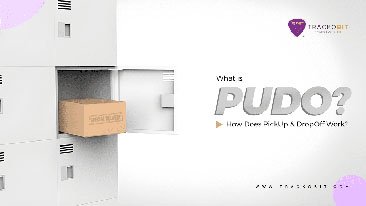-
TrackoBit
Manage commercial vehicles with the new-age Fleet Management Software
TrackoBit -
TrackoField
Streamline your scattered workforce with Field Force Management Software
TrackoField -
Features Resources
-
Blog
Carefully curated articles to update you on industrial trends. -
White Paper
Insightful papers and analysis on essential subject matters. -
Glossary
Explore an alphabetical list of relevant industry terms. -
What’s New
Get TrackoBit & TrackoField monthly updates here. -
Case Study
Explore the cases we solved with our diverse solutions. -
Comparisons
Compare platforms, features, and pricing to find your best fit.
-
About Us
Get to know TrackoBit: our team, ethos, values, and vision. -
Careers
Join the most dynamic cult of coders, creatives and changemakers. -
Tech Support
Learn about our technical support team and services in detail. -
Events
Check out the exhibitions where we left our marks and conquered. -
Contact Us
Connect with us and let us know how we can be of service.
Fuel Theft in Uganda: How It’s Disrupting Your Fleet and How to Stop It
- Author:Anvesha Pandey
- Read Time:5 min
- Published:
- Last Update: June 17, 2025
Table of Contents
Toggle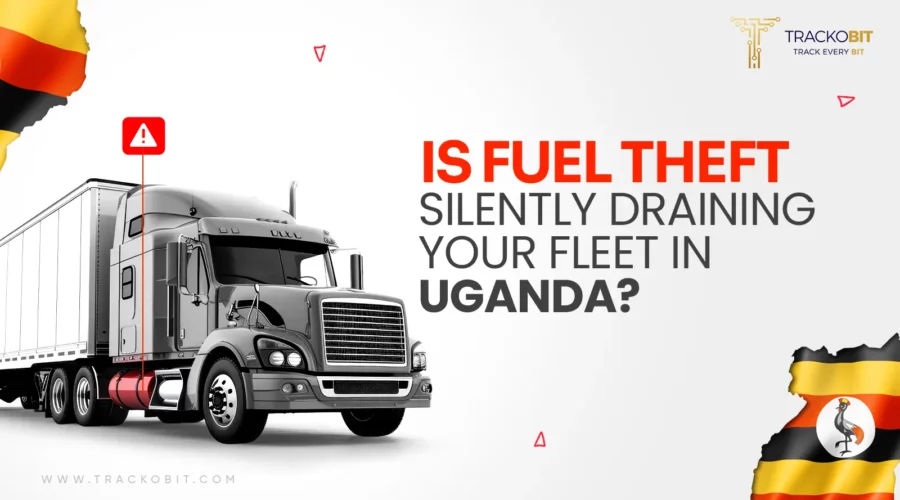
Running a fleet in Uganda? Fuel theft probably tops your list of daily headaches. Dive into this blog to uncover what’s draining your fuel & how to put a full stop to it.
Table of Contents
ToggleFuel theft in Uganda is exponentially growing. It’s cutting into your fleet’s profits, slowing down operations. You’re dealing with shady mileage drops, ghost refuels, and drivers with too many “explanations.” And it’s happening everywhere at pumps, depots, and on the road. The worst part? You won’t realize, but it’s eating up your finances & business credibility.
What if we tell you that you can actually protect it!
How? With fuel management software!
Read on to see how fuel theft is hitting Ugandan fleets and what you can do to stop it.
How Fuel Theft Is Affecting Fleets in Uganda
Every operation has its challenges—but not knowing what you’re up against is even worse. Let’s explore how fatal fuel theft is for Ugandan fleet – the negative impact!
The Real Cost of Fuel Theft in Uganda
Fuel theft cannot just be frustrating but it’s also very expensive. With rising gas prices in Uganda almost reaching UGX 5,000- 6,000 per liter in the recent years even the smallest losses can turn out into a major financial set back. In fact, for most of the fleet operators it’s worse than just a few liters going missing.
Another crucial concern is Fuel Theft. Studies over the internet explain that fuel theft accounts for 20-30% of the fleet’s operating cost. The numbers themselves state that it’s not a minor leak. Ouch, that’s a major share of your revenue.
What’s more challenging is no sector is safe for fuel theft. Long-haul transporters, agricultural fleets, NGO vehicles, mining and construction operations are feeling the pinch.
With all these challenges it’s time to stop guessing and start monitoring. Infact let’s break down how fuel theft is quietly wrecking your daily operations.
How Fuel Theft is Disrupting Your Fleet?
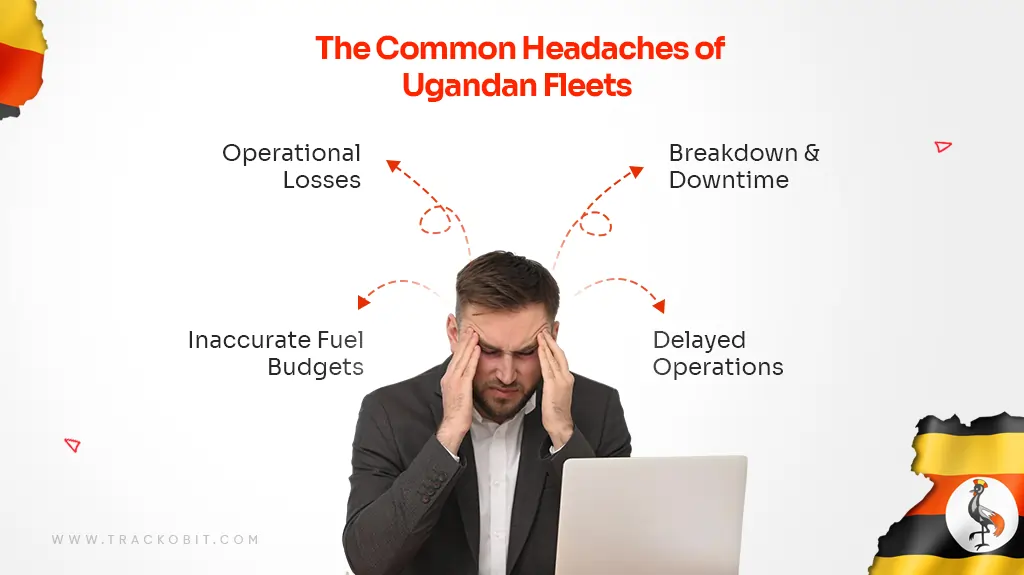
The Common Headaches of Ugandan Fleets
1. Operational Losses
Fuel theft directly cuts into your fleet’s profits. When drivers or fuel station attendants siphon off gas, you’re paying for liters that are not even used for your trips. Over time, this unnoticed leakage turns into significant operational losses. Its money lost without any productive output.
2. Breakdowns & Downtime
Tampering with fuel systems like drilling tanks or using faulty siphoning methods can damage vehicles. These small acts lead to unexpected breakdowns. Further pushing your vehicles into the mechanics place more often than on roads.
The result? More downtime and delayed deliveries. In fact, its all less movement, more maintenance bills.
3. Inaccurate Fuel Budgets
When diesel is stolen, your data becomes unreliable. The system might show high consumption, but the distance covered doesn’t match. This creates inaccurate budgeting, making it hard to forecast or control fuel expenses. You end up spending more without knowing why.
4. Delayed Operations & TAT Failures
Fuel theft often results in mid-route shortages or unplanned refuels. This slows down trips, causes missed deadlines, and disrupts turnaround times (TAT). When vehicles don’t show up on time, customer trust takes a hit. And in logistics, timing is everything.
How Implementation of Fuel Monitoring System Can Turn out to be Changer?
Fuel theft in Uganda is a serious concern—and when it starts hitting you daily, guessing isn’t enough. That’s when a smart fuel monitoring system comes in. With TrackoBit’s fleet management software, you get real-time control and zero guesswork.
Here’s how in detail:
1. Real-Time Tracking
TrackoBit’s system tracks fuel levels in real time, allowing you to detect any sudden drops or suspicious activity instantly. No more waiting for end-of-day reports—if someone siphons fuel, you’ll know the moment it happens. This immediate visibility helps you respond faster and prevent repeat offenses.
2. GPS Tagged Refueling Events
Every refuel is logged with exact GPS coordinates and time stamps. You’ll know where, when, and how much fuel was added and if it matches the bill. This eliminates fake refueling entries, double billing at gas stations, and helps enforce accountability across the board.
3. Driver Performance Scorecards
Fuel misuse often starts when you don’t have the full picture of what’s really happening on the road. That’s where “Driver Scorecards” comes in. They keep track and provide score of events like engine idling, over speeding, harsh braking, sudden acceleration, and odd fuel patterns.
So, you’re not just guessing anymore. You get a clear view of who’s driving smart and who might be quietly burning through your fuel (and money).
🎯 Bonus:TrackoBit with its Driver Behavior Monitoring System goes a step further. It uses real-time telematics data to flag risky or inefficient driving patterns. When combined with a fuel monitoring system, it becomes a powerful tool to not just detect but prevent it but prevent it altogether by building a more responsible driving culture across your fleet.
Unleash in detail: Ultimate Guide to Driving Behavior Monitoring In Your Fleet
4. Detailed Fuel Reports
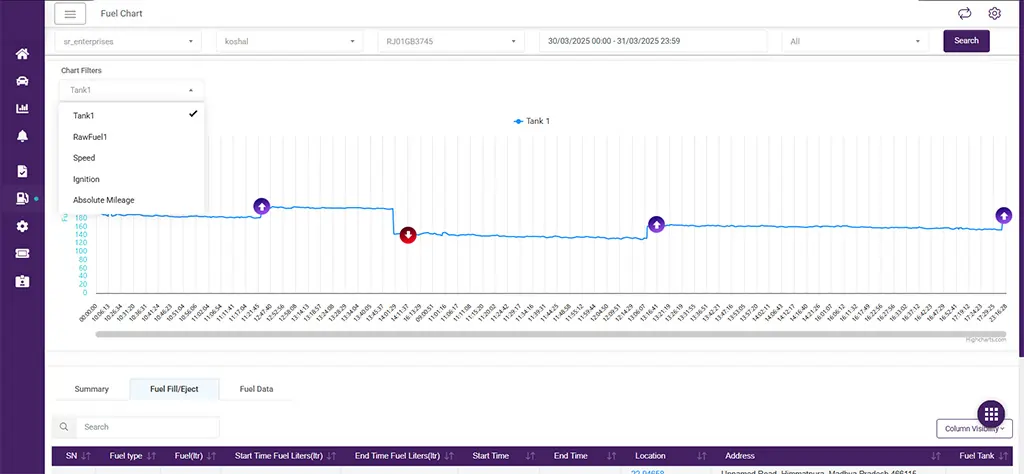
That’s how Fuel Reports Appear!
Generate automated, easy-to-read reports showing daily fuel usage, top refueling locations, discrepancies, and more. These reports support transparent audits and make fuel expense management far more predictable, and data backed. You stop relying on assumptions—and start relying on numbers.
Legal Risks and Compliance Issues for Fuel Theft in Uganda
🚨 Fuel Theft = Criminal Offence
In Uganda, employee fuel theft falls under embezzlement or “theft by servant” (Penal Code Act). That means it’s not just internal misconduct—it’s a punishable legal crime.
📋 URA Compliance Isn’t Optional
The Uganda Revenue Authority requires accurate fuel usage and tax records. If your logs don’t add up, you could face audits, fines, or compliance issues.
🌍 NGO & Donor Fleets Face Stricter Rules
Fleets backed by international donors (like USAID or UN) must follow tight asset tracking norms. Missing or shady fuel data could put your credibility and funding at risk.
🛡️ Insurance May Not Cover You
Insurers won’t cover fleets that don’t show preventive efforts. If theft becomes routine, they may raise premiums or deny claims outright.
Final Words
Fuel theft is no longer a silent threat, it’s an actively draining profits, delaying operations, and putting fleets across Uganda at risk. And with prices soaring and compliance getting tighter, staying in the dark is no longer an option. If your fleet operates in Uganda, now is the time to act. A reliable fuel monitoring system can bring the visibility and control you need.
Operating in Uganda?
Take charge with TrackoBit’s fuel monitoring system because every drop counts.
Get in touch to know more!
Anvesha is a communication specialist at TrackoBit. With a strong background in media and communications, she adds much-needed balance and brevity to TrackoBit’s... Read More
Related Blogs
-
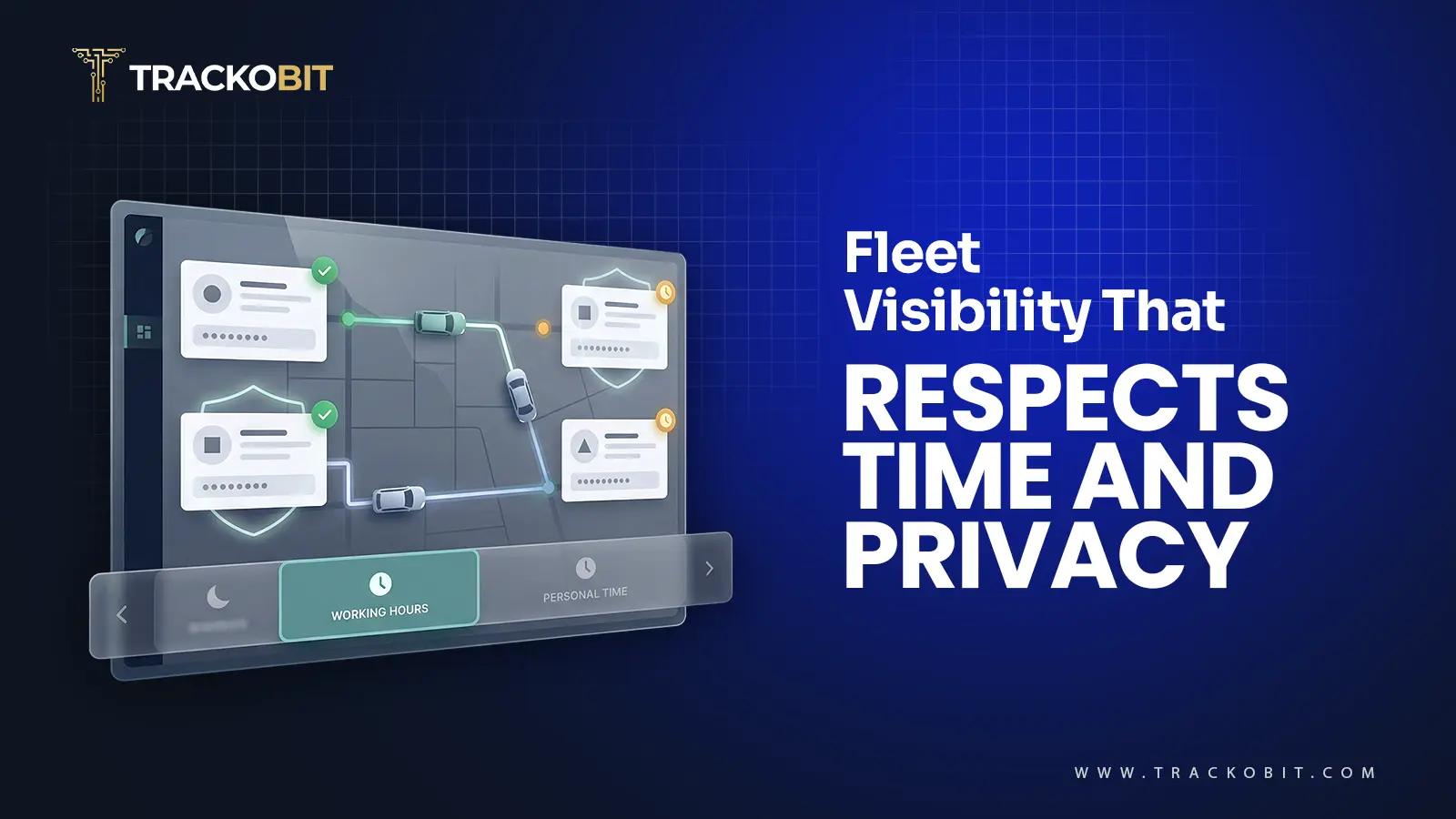
When Tracking Needs a Clock: Rethinking Fleet Visibility
Tithi Agarwal December 24, 2025Read on to understand why fleet tracking works better when it follows working hours. Because visibility should support operations, not…
-

What Makes TrackoBit’s Video Telematics Software Truly Next-Gen?
Shemanti Ghosh December 17, 2025TrackoBit’s video telematics software blends smart video intelligence with full server control. The result? Superior fleet reliability and safety.
-
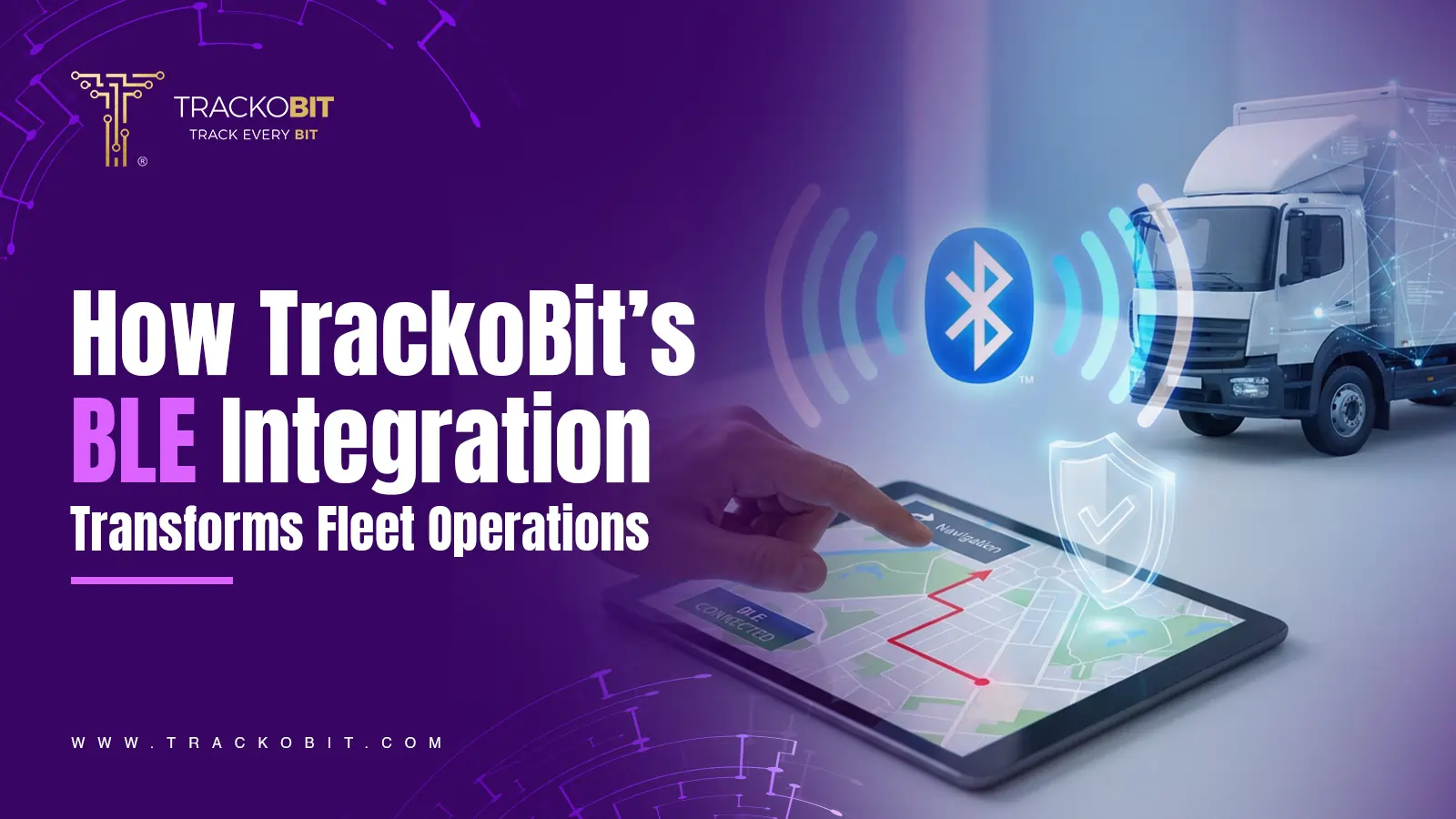
Plug, Pair, Perform TrackoBit Introduces BLE Sensor Integration
Tithi Agarwal November 26, 2025TrackoBit’s BLE Sensor Integration enables wireless, real-time monitoring with faster installs and accurate insights. It improves fleet efficiency, visibility, and…
-
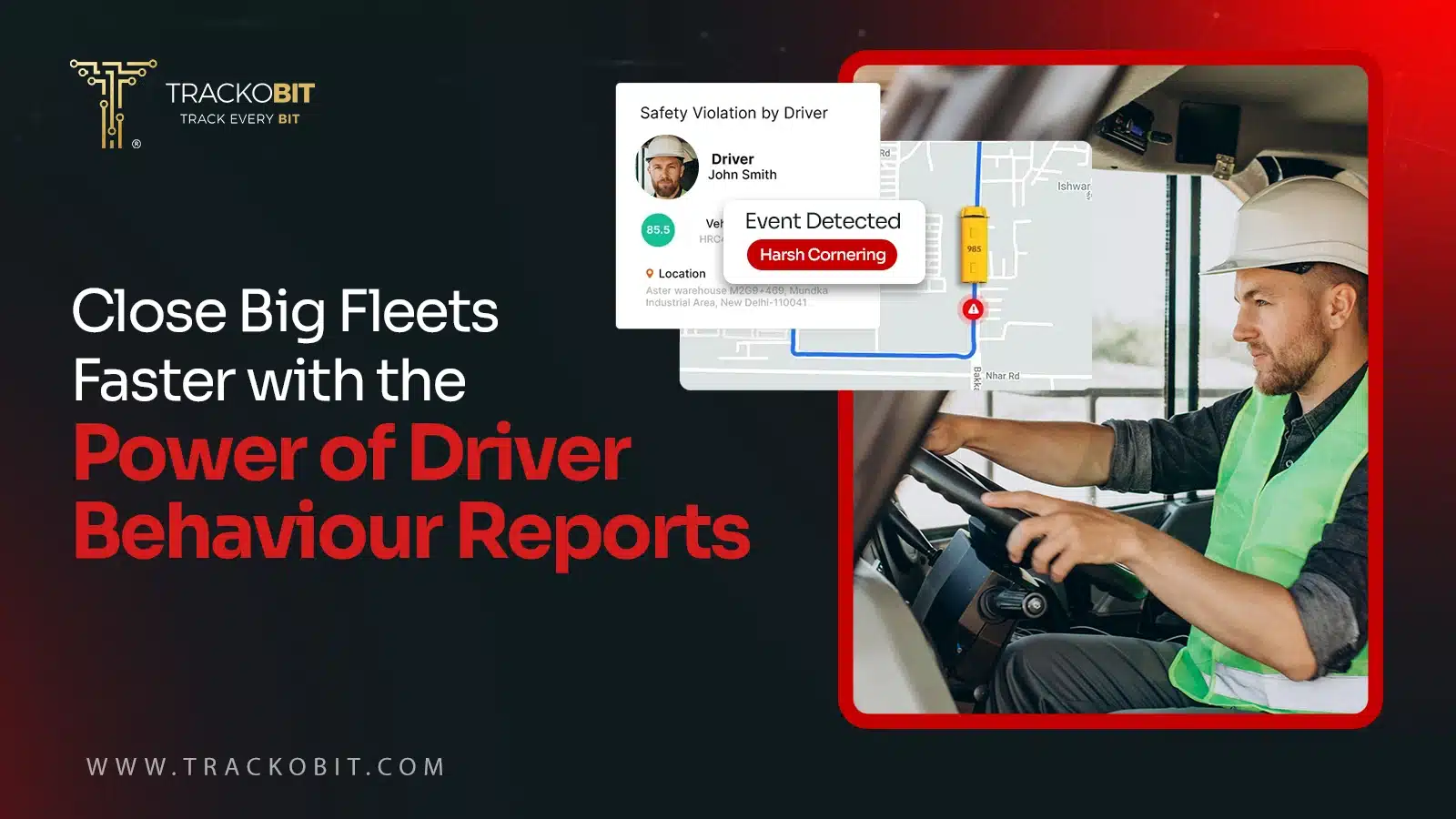
How to Use Driver Behavior Reports as a Sales Hook to Close Big Fleets
Tithi Agarwal October 16, 2025TrackoBit’s driver behavior reports empower fleet providers to win big contracts by showcasing safety, efficiency, and measurable ROI.

Subscribe for weekly tips to optimize your fleet’s potential!
Your inbox awaits a welcome email. Stay tuned for the latest blog updates & expert insights.
"While you're here, dive into some more reads or grab quick bites from our social platforms!"Stay Updated on tech, telematics and mobility. Don't miss out on the latest in the industry.
We use cookies to enhance and personalize your browsing experience. By continuing to use our website, you agree to our Privacy Policy.

































